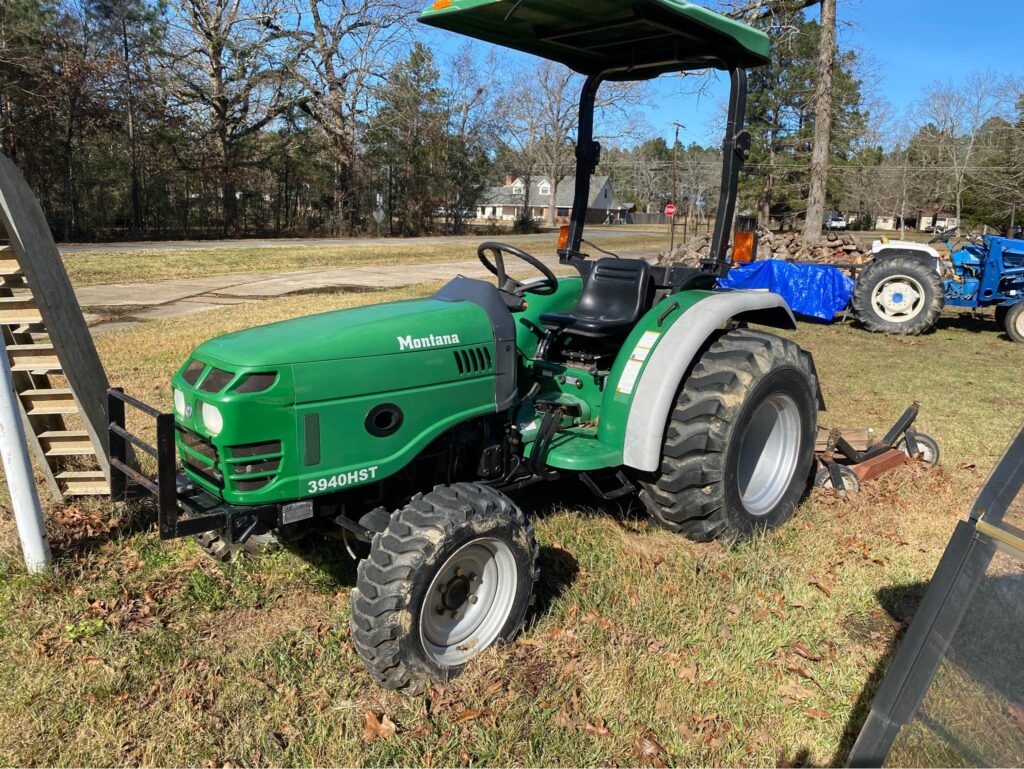Ever wondered if your lawn tractor can handle more than just mowing the grass? Surprisingly, many lawn tractors can pull up to 1,000 pounds or more, turning them into versatile workhorses for your yard. Imagine the convenience of towing heavy loads with ease, saving you time and effort.
Understanding your lawn tractor’s pulling capacity is crucial for optimizing its use. Overloading can lead to costly damage and reduced lifespan. In this post, you’ll discover the maximum pulling capacity of various models and learn how to safely maximize your tractor’s potential. Let’s dive into the details and unlock your tractor’s full power!
Keynote: How Much Can a Lawn Tractor Pull?
Most lawn tractors can pull between 250 to 1,000 pounds, depending on the model. Always refer to your tractor’s manual for specific limits and follow safety guidelines to avoid damage and ensure optimal performance.
Understanding Lawn Tractor Towing Capacity
What is Towing Capacity? Towing capacity refers to the maximum weight a lawn tractor can safely pull. It’s a critical factor for anyone looking to get the most out of their equipment without causing damage.
Lawn tractors can typically tow between 50% to 100% of their weight plus the operator’s weight. This range depends on the tractor’s build, engine power, and design. Specific Models and Their Towing Capacities:
- Cub Cadet XT2SLX: This model can tow up to 470 lbs, making it suitable for moderate yard tasks.
- John Deere X300: Known for its durability, the X300 can tow up to 542 lbs, ideal for more demanding jobs.
Common Lawn Tractor Towing Capacities
| Tractor Type | Average Towing Capacity |
|---|---|
| Garden Tractors | 500 – 1,000 lbs |
| Sub-Compact Tractors | 1,000 – 2,000 lbs |
| Lawn Tractors | 250 – 500 lbs |
| Riding Mowers | 200 – 400 lbs |
Different types of lawn tractors have varying towing capacities. Garden tractors and sub-compact tractors typically offer higher towing capacities, making them suitable for heavier tasks.
Always consult your lawn tractor’s user manual for specific towing capacities. Adhering to the manufacturer’s guidelines ensures safety and maintains your tractor’s warranty. Overloading beyond recommended limits can void warranties and lead to equipment damage or personal injury.
Factors Affecting Towing Capacity
Weight of the Tractor and Operator: The combined weight of the tractor and operator forms the baseline for towing calculations. Heavier tractors and operators generally increase the potential towing capacity.
Torque vs. Horsepower: When it comes to towing, torque is more critical than horsepower. Torque provides the necessary power to move heavy loads, while horsepower determines speed.
Transmission: The type and condition of your transmission significantly impact towing capacity. Hydrostatic transmissions offer smoother power delivery, making them better for towing.
Braking Power: Strong and efficient brakes are essential, especially on slopes. Effective braking ensures safety when towing heavy loads, preventing potential accidents.
Terrain: Different terrains affect towing capacity. Wet, muddy, or hilly terrains can reduce traction and increase the strain on your tractor, lowering its effective towing capacity.
Attachments and Equipment: Consider the weight of additional towing accessories like dump carts, hitches, and brackets. These add-ons can reduce the overall towing capacity by adding extra weight.
Types of Trailers and Equipment That Can Be Towed
Utility Trailers: Utility trailers are versatile and perfect for various yard work tasks. They are ideal for hauling branches, firewood, and other garden materials, making your projects more manageable.
Dump Trailers: Dump trailers are designed for heavier materials like dirt, gravel, and other loose items. They make transporting and unloading bulk materials effortless, saving you time and physical effort.
Lawn Sweepers: Lawn sweepers are excellent for picking up leaves, grass clippings, and other debris. They help keep your yard clean and reduce the time spent on manual raking.
Lawn Aerators: Towing a lawn aerator improves soil and lawn health by creating small holes in the soil. This allows air, water, and nutrients to penetrate deeper, promoting a healthier lawn.
Sprayer Trailers: Sprayer trailers are essential for fertilizing and applying chemicals to large areas. They ensure even distribution, making lawn care more efficient and effective.
Safety Tips for Towing with a Lawn Tractor
- Pre-Towing Inspection: Always inspect your tires, hitches, and the overall condition of your trailer before towing. Ensure everything is in good working order to prevent accidents.
- Hitching Properly: Securely connect the trailer to your lawn tractor. Double-check all connections to ensure they are tight and won’t come loose during operation.
- Load Distribution: Balance the load in your trailer to avoid tipping and improve stability. Uneven loads can cause the tractor to become unstable, especially on uneven terrain.
- Driving Techniques: Start slowly to prevent sudden jerks that can destabilize the load. Navigate turns carefully and maintain safe speeds to ensure control over the tractor and trailer.
- Braking and Stopping: Allow extra distance for braking when towing a load. Heavier loads require more stopping distance, so plan your stops in advance to maintain safety.
Common Mistakes to Avoid
Exceeding your tractor’s towing capacity can cause serious damage and pose safety risks. Always adhere to the recommended weight limits to avoid costly repairs and accidents.
Uneven load distribution can lead to instability and tipping. Ensure your load is evenly balanced to maintain control and prevent accidents.
Towing at high speeds increases the risk of losing control. Always maintain a safe, moderate speed to ensure stability and safety while towing.
Regular maintenance checks are crucial for safe towing. Neglecting routine inspections can lead to equipment failure and accidents. Keep your tractor and towing equipment in top condition for reliable performance.
Maintenance and Care
- Regular Checks: Conduct routine inspections of your tractor’s mechanical components. Check for wear and tear, ensure bolts and nuts are secure, and inspect tires for proper inflation and condition.
- Transmission and Brake Care: Maintain your transmission and brakes for optimal performance. Regularly change transmission fluid, inspect brake pads, and replace them when necessary. These steps ensure your tractor operates smoothly and safely.
- Storing Equipment: Store towing attachments and trailers properly to prolong their lifespan. Keep them in a dry, sheltered area to prevent rust and deterioration. Regularly clean and lubricate moving parts to maintain functionality.
Final Thought
Understanding how much your lawn tractor can pull unlocks its full potential, transforming it from a simple mower into a versatile tool for various yard tasks. By knowing the towing limits and following safety guidelines, you can make the most out of your investment while ensuring its longevity and reliability.
Think of your lawn tractor not just as a machine, but as an ally in maintaining and improving your property. With the right knowledge and care, your tractor can handle more than you might have imagined, making your yard work easier and more efficient. What new projects will you tackle now that you know your tractor’s true capabilities?
How Much Weight Can a Lawn Tractor Pull (FAQs)
How to weigh a garden tractor for pulling?
Weighing a garden tractor for pulling requires using a set of wheel scales. Drive each wheel onto a separate scale and record the weight. Add the weights of all wheels for the total weight.
What is the capacity of a tractor pull?
Tractor pull capacity varies by tractor type and class. Garden tractors can typically pull up to 1,000 lbs, while larger farm tractors can pull several tons.
What is the towing capacity of the Craftsman LT1500?
The Craftsman LT1500 has a towing capacity of approximately 300 to 400 lbs. Always check the user manual for exact specifications.
Can a ride-on mower tow a trailer?
Yes, a ride-on mower can tow a trailer. Ensure the load does not exceed the mower’s towing capacity to avoid damage.
How much HP do pulling tractors have?
Pulling tractors often have high horsepower, ranging from 1,000 to over 2,000 HP, depending on the class and modifications.
What engine do pulling tractors use?
Pulling tractors use powerful, high-performance engines. Common types include turbocharged diesel engines and modified gasoline engines.
How good is a LT1018 lawn tractor?
The LT1018 lawn tractor is known for its reliability and ease of use. It’s suitable for medium-sized lawns and light towing tasks.
What is the top speed of a riding lawn mower?
The top speed of a riding lawn mower varies by model. Most can reach speeds between 5 to 8 mph.
Zero turn towing capacity?
Zero-turn mowers typically have a towing capacity of 300 to 500 lbs. Check the manufacturer’s guidelines for exact limits.
Is a riding lawn mower too much for my yard?
A riding lawn mower is ideal for yards larger than half an acre. For smaller lawns, a push mower might be more practical.
How does caution impact towing with a riding mower on rough ground?
Exercise caution when towing on rough ground. Uneven terrain can destabilize your setup and cause accidents.
What is the maximum towing capacity of a typical riding mower like a Kubota?
A typical Kubota riding mower has a maximum towing capacity of around 300 to 500 lbs, depending on the model and setup.
Why is the axle and transaxle important in a mower’s towing capacity?
The axle and transaxle are critical as they bear the load’s weight. Overloading can damage these components.
What’s a simple analogy to explain the general rule of thumb for towing capacity?
Think of towing capacity like a wheelbarrow. Just because it fits doesn’t mean it’s safe to overload it.
How do inclines and level ground affect towing with a residential lawn mower?
On level ground, a mower can tow closer to its maximum capacity. Inclines reduce capacity due to added strain on the engine and transaxle.

Chris has 15 years of experience using all the latest technologies, machinery, and equipment available on the market today. His diverse experience allows him to provide homeowners with the best possible results while saving them a lot of time and money. When it comes to Lawn Tractors, Chris knows every model there is – so if you’re looking for advice, he’s your man!
